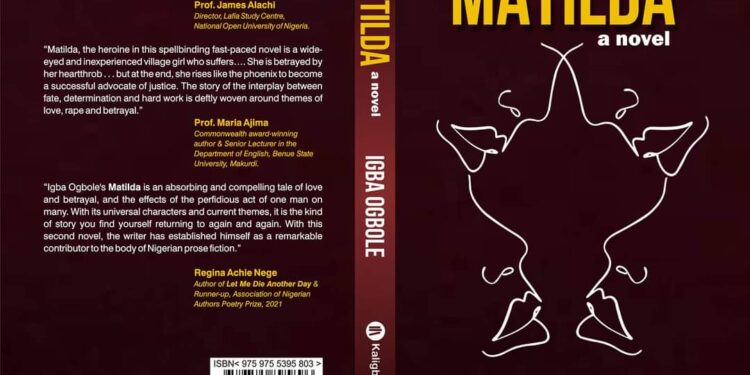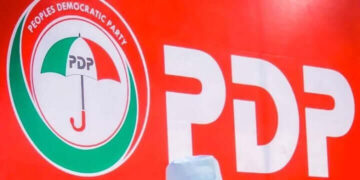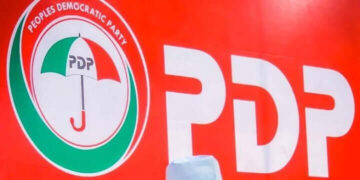“Books give a soul to the universe, wings to the mind, flight to the imagination, and life to everything.” – Plato
I recall my primary school days in the early to mid-70s. Our first steps towards literacy acquisition started back then with learning the English alphabet alongside the Idoma. We started in what they then called ABC class, what is known as kindergarten today. We were taught to not only read the letters but also recite them in musical form. It was fun, it was beautiful.
As we progressed, we were introduced to what was then known as ‘Reader’ from which we learnt how to read stories, short but interesting stories. Till today, I remember things like, “Toma. This is Toma. Toma is a boy. He is holding a stick”. Then, “Tani. This is Tani. Tani is a girl. She is carrying a pot”.
I also remember vividly that final year pupils were made to write short stories, stand before the morning assembly and tell such stories by heart, in turns. My story was about a football match in which my village team defeated its opponent three-nil.
This peep into the past is to establish that in those good old days, conscious efforts were made to inculcate the reading habit in children right from the tender age. This is because the world then fully understood the import of reading to the growth of the individual and the development of society. This is why Francis Bacon, an English philosopher and leading Essayist, observes that “Reading maketh a full man . . .”
Napoleon Bonaparte, a French military and political leader, attaches so much value to reading that he says, “Show me a family of readers and I will show you the people who move the world”. For him, readers dictate the pace of how the world operates. Expressing her view of reading, American Poet and civil rights activist, Maya Angelou says, “When I look back, I am so impressed again with the life–giving power of literature. If I were a young person today, trying to gain sense of myself in the world, I would do that again by reading, just as I did when I was young”.
Read Also: THE FEAR OF UNCERTAINTY
For the American creative artist, Laurie Anderson, “Literature is the safe and traditional vehicle through which we learn about the world and pass on values from one generation to the next. Books save lives.” On his part, one time Minister of State for Education, Prof. Jerry Anthony Agada, in his book, The Writer as the Soul of Man, insists that, “The culture of reading must be inculcated into our systems. This is only when, as individuals, we would become great minds; and as a nation, we would become the great nation of our dreams.”
There is so much the individual can benefit from reading.
- Travels. Recently, during a sit-out with friends, I told them I had travelled round the world more times than I could count. They were all like, “Wow!” “How?” “When?” I told them how, in my college days, I read most of the James Hadley Chase titles; how I used to accompany the author and his characters to fly in private jets to cities of the world, drive through streets in high tech, exotic cars, encounter enchanting sceneries, and the lot. When you read, you can travel to anywhere and everywhere while sitting in the comfort of your home or your secluded place of choice.
- Better understanding of others. Reading helps one to understand and appreciate other people, their customs and traditions better. This reduces false impressions and stereotyping. For instance, reading Things Fall Apart by Chinua Achebe bonded me more with the Igbos when I realised that their culture and traditions were not too different from those of my tribe. In fact, I developed everlasting friendship with some of the characters I met in that classic, especially Okonkwo.
- Gaining Knowledge. There is so much that can be learnt from books. When one forms the habit of reading regularly, they expand their knowledge base and enhance their capacity for imaginative and creative thinking. For instance, I had always wondered why the June 12, 1993 presidential election in Nigeria had to be cancelled when a candidate was already coasting home to victory. It took my recent reading of an exposé on one of the recent presidential candidates for me to gain a proper and better insight into what must have been the reason for that infamous action.
- Enriching your vocabulary. Reading consistently helps you to continually build and improve your vocabulary, an asset which can come handy in many areas of your life – during competitions, examinations, debates, interviews for jobs or visas, writing of books or proposals, etc.
- Boosting memory/stimulating the brain. Reading boosts your retentive memory and enhances your focus. It equally stimulates your brain, enlivens your mood and enhances critical thinking.
- Stress antidote. When you read, especially prose fiction, stress will run away from you. By the time you interact, laugh and roll on the floor along with the characters in that novel you are reading, stress will be scared of you. Trust me. If you are not yet into reading, then start right away and thank me later. There are riches in reading.
In addition to the individual benefits, reading builds a corpus of specialised human capital base, with sound intellectual grounding that can efficiently initiate and navigate the processes and procedures of sustainable growth and development. It also goes without saying that only a society proficient enough in the reading culture can easily understand and interrogate government objectives, policies and programmes to sufficiently participate in them.
A non-reading society is usually deficient in the production of quality, adequately knowledgeable leaders, the consequence of which is the existence of knowledge gaps, leadership crises and stunted growth. If, as Ann and Samuel Charters argue in their book, Literature and Its Writers – An Introduction to Fiction, Poetry and Drama, that “A good reader possesses an active imagination, a retentive memory, . . . and a rudimentary artistic sense”, it then follows that a non-reading leader, at whatever level, would be deficient in all these qualities.
It is the realisation that reading adequately prepares citizens to be useful to themselves and their societies, and particularly contribute to nation-building, that countries of the world do not joke with their literati, and do everything to promote the reading culture among their people.
These efforts notwithstanding, many people still find it difficult to read books. This poor attitude to reading has a negative effect on nation-building. If our children, who are the leaders of tomorrow, are not reading, how would they acquire appropriate knowledge on leadership to serve? If we, the adults, are not reading, how do we gain the desired knowledge to contribute our quota from our respective corners to nation-building? If our leaders, in whose hands our well-being lies, are not reading, how can they lead us well and re-engineer our nation towards the much needed development and greatness?
So, you see, we all need to read books to enjoy the riches therein!







